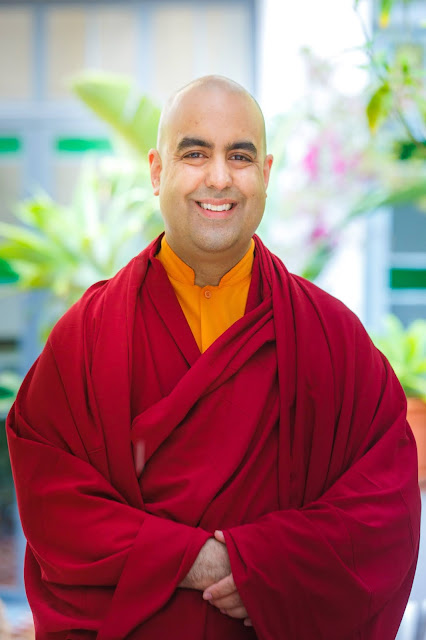Wisdom is the ultimate application of true knowledge. But why do people misunderstand true wisdom? Does wisdom come with age? Let’s find out.

Many people have discussed this online in social forums about the existence of hypocrisy and true wisdom and the difference between the two.
It isn’t a surprise to see so many people engaged in these social forums debating with each other about the need for true wisdom. After all, our generation gets unlimited sources to attain knowledge effortlessly.
Almost everyone today is interested in some wisdom quotes, which are mostly related to achieving success and the ways to harness it. I would call this version of the supposed wisdom a fad.
While there is nothing bad in believing it, yet the fad or obsession with it is responsible for the ultimate misunderstanding of wisdom that our society is facing currently.
Most people do not even know what true wisdom is. Everyone has just formed their understanding without even realizing the implications of it.
True wisdom does not rely or depend on age. It is the ultimate application of knowledge into situations after visualizing, understanding, and learning from multiple sources of information in our surroundings.
However, it is just a glimpse of how true wisdom manifests in society. Nothing is better than believing in a wise soul who has enough experience and insight to guide us.
So, let us find out why do people misunderstand true wisdom.
What is true wisdom?
Now, I am not a paragon of wisdom, nor am I a host of peace and stability. But, I have realized that true wisdom is very different from what we believe it is. We are almost clueless about the basis of wisdom and knowledge.

To understand it, we need to find out how people gain experiences both good or bad and how do they end up applying them in practical lives.
The more open one is to new experiences, the broader his area of knowledge is, and the more he will attain knowledge. However, it is the further processing of knowledge with one’s beliefs, values, and principles that ultimately result in true wisdom.
So, “How do we understand wisdom?”
“What is true wisdom?”
Here are 3 facts about true wisdom that society misunderstands.
1. True wisdom values the limitlessness of learning:
I think one of the biggest drawbacks of our generation is the superior ‘know-it-all’ attitude they carry. Most people, especially the ones who advocate a pseudo-philosophy of life, deem themselves wiser than others.
The biggest truth about wisdom is that it values the limitlessness of knowledge. A person who is very interested in learning and growing at every age is the truly wise one.
Wisdom demands knowledge. It is its fuel that helps refine subjective human experiences. Hence, the unlimited learning of things right from a young age develops true wisdom.
2. True wisdom is far beyond the mediocrity of life:
Experiencing life is a very subjective experience that one has to ultimately find as a purpose or a goal. True wisdom works the same way. A wise person doesn’t lose himself in the mediocrity of life, such as talking, gossiping, and eavesdropping.
Instead, he invests much of his time to know about the things higher than him, like spiritual, scientific, artistic, and philosophical experiences. Moreover, one also understands that engaging in these things is nothing but a waste of time and resources.
Hence, true wisdom is far beyond the mediocrity of life.
3. True wisdom is silent and serene like water:
The ones who I find across the internet talking about true wisdom seem very unwise and unknowledgeable to me. I am surprised how many people follow them without questioning their wise words.
True wisdom is fluid like water, deep but silent and serene. A wise person is not flamboyant and boisterous. However, he does influence people in different ways silently without compromising on his own time. A wise person will always support a friend rather than hosting a rally or seminar.
Hence, true wisdom is very silent and serene like water that does not rely on external sources to show its depth.
So, we have discussed the meaning of true wisdom and the facts about it.
But, “Why do people misunderstand true wisdom?”
Let’s find out.
Why do people misunderstand true wisdom?
We misunderstand true wisdom for many different reasons. The misconceptions about true wisdom will likely remain for a long time until people realize that they have just been awkward and pseudo philosophers the whole time.

However, this doesn’t mean that we are living with a false idea of wisdom, just that we have wrongly adopted it. We are aware of how wisdom affects a person, and yet we foolishly misunderstand its relevance and objective.
The branches of wisdom go wide beyond the limitations of knowledge in expressing anything beyond human understanding. It adopts its own principles, beliefs, values to fine-tune the concepts and experiences at hand.
So, “Why do people misunderstand true wisdom?”
“What are the possible reasons behind it?”
Here are 7 strong reasons why do people misunderstand true wisdom.
1. They confuse practical knowledge with wisdom:
People confuse practical knowledge with wisdom a lot. In other words, wisdom is largely confused with practicality and objectivity. The reason behind it is the relevance of facts and data that has nothing to do with wisdom.
A wise person knows about the extent to which facts and data could go to prove things, yet they cannot comprehend the subjective experiences that are independent of objectivity.
Hence, people confuse practical knowledge with wisdom.
2. They idolize people with no wisdom at all:
I don’t think people know about wisdom that much. They follow and idolize certain personalities and their false wisdom, which is nothing but them bragging about their success stories.
Now, these personalities do not have wisdom. They just try to influence people with their blatant lies that are proven wrong under scrutiny. People fall victim to their not-so-wise words and idolize them to a fault.
Therefore, the reason people misunderstand wisdom is that people idolize personalities with no wisdom.
3. They confuse self-absorption with self-awareness:
Self-absorption is not just a trait, but in recent years it has become more of a trend to look cool and attractive to people around. Nothing is worse than believing in things and qualities representing the self-centered part of humanity.
A wise person knows how self-absorption affects an individual’s search for knowledge. He understands that to gain wisdom, one has to be highly self-aware. Besides, self-awareness is also the basis of true knowledge.
Hence, people confuse self-centredness with self-awareness, which ultimately leads to a misunderstanding of true wisdom.
4. They believe wisdom is one-dimensional and only perceptive:
“Do you think wisdom is one-dimensional and dogmatic in its views?”
Then you are wrong.
The best part about wisdom is that it is highly explorative and open. A truly wise person explores multiple possibilities to comprehend the nature of everything around him.
Wisdom is like water, as I have discussed before, and utilizes its adaptability to suit the situations. Likewise, a wise person is highly adaptive and takes into account the wide and beautiful approach of wise years.
Therefore, wisdom is not one-dimensional or dogmatic but highly perceptive and explorative.
5. They believe wisdom requires the sacrifice of materialistic pleasures:
I guess this is more of a stereotype than a misunderstanding, but important. A lot of time people perceive wise ones to be old, weary, and spiritual.
While spirituality is a by-product of wisdom, it is a misconception that wisdom requires a person to sacrifice materialistic pleasures. Wise people understand the need for wealth and fame to sustain themselves in the world.
However, they do not completely rely on it and are much content with finding their purpose and identity by experiencing things. Hence, one does not sacrifice materialistic pleasures to attain true wisdom.
6. They believe wise people are boring and mundane:
Wisdom might be very offbeat and passive, but it is not at all mundane and boring. The wiser you are, the more you understand the usefulness of excitement and hedonist pleasures in enjoying and living in the present.
Wise people believe and live with what we have today. They practice gratitude and eudaimonia as much as possible and embrace the here and now. Moreover, they are also very peaceful with their lives and rarely lose control.
So, in simple words, they are not at all boring and mundane.
7. Lastly, they think wisdom makes one recluse and withdrawn:
Wisdom is very complex and adaptable concerning the situations. What we believe is that wisdom makes a person very recluse and withdrawn with minimal contact with society.
But that is not true.
Wise people are social chameleons who quickly and smartly adapt to the world around them. Even though being loners by nature, they are misunderstood for being extroverts, and people fail to understand their true motives.
Hence, wisdom does not make people recluse and withdrawn, it teaches them the value of getting along as a society.
Final Words:
To sum up, wisdom is a great trait that has nothing to do with the aging process. You can be wiser than most people, even in your teens. All it needs is experience, perception, and knowledge.
However, you can correct yourself with the above seven points if you misunderstand wisdom, in general, to gain a comprehensive idea of how it manifests in a person.
